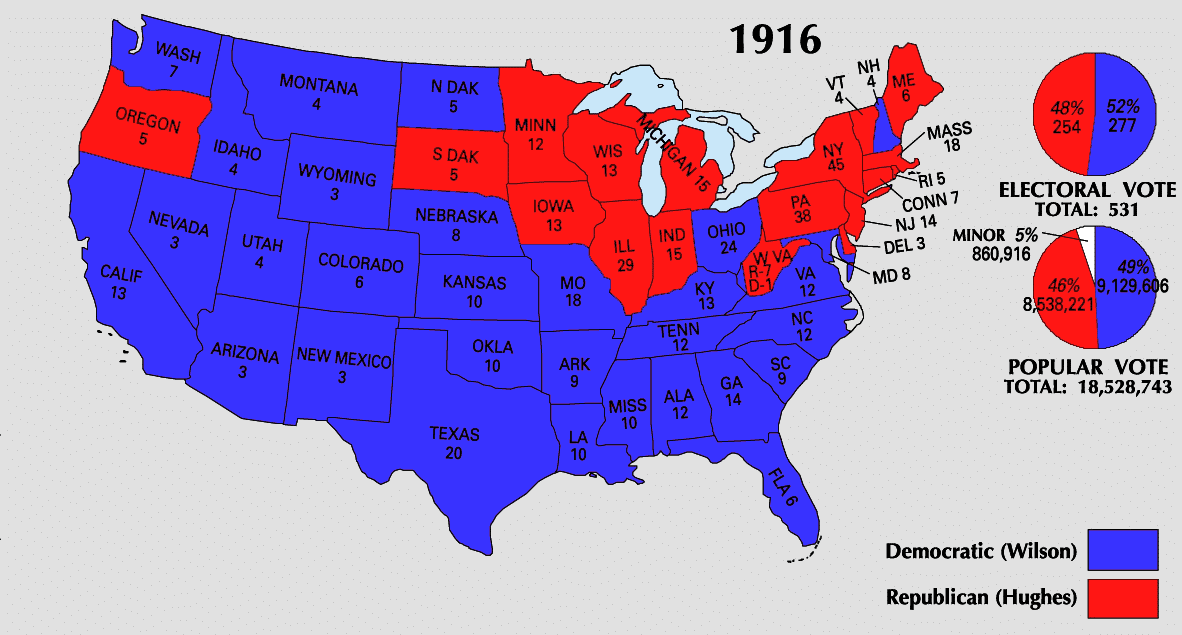Woodrow Wilson had easily won the Election of 1912 but would find the road much tougher in the Presidential Election of 1916.

The election took place during the Mexican Revolution and World War 1. Although the United States had not officially entered the war and had declared a neutral status, public opinion was in favor of the Allies.
Each candidate would have to take a stance on the issue. America had stayed neutral and out of European affairs since its inception. This had been the advice of George Washington in his farewell address, and all presidents since have honored that advice.
However, the world was a different place.
The candidates were as follows:
- Democrats: Woodrow Wilson and Vice President Thomas R. Marshall
- Republicans: Charles Evans Hughes and Vice President Charles W. Fairbanks
Platforms
Democrats: Woodrow Wilson had successfully kept the United States out of World War I. This was something that many in America appreciated. However, the tensions were growing higher, and German actions against American Merchant vessels were beginning to cause issues with his popularity.
Republicans: Theodore Roosevelt played another important role in the election. He loathed President Wilson and believed he was being bullied by the Germans. After nominated by Charles Evans Hughes, the Republican took a more pro-war stance and tried to brand Wilson as an anti-war candidate, and they would try to make him appear weak.
Outcome
The Democrats built their campaign around the slogan, "He Kept Us Out of War," which says a Republican victory would mean war with both Mexico and Germany. Wilson's position was probably critical in winning the Western states.
Charles Evans Hughes insisted on downplaying the war issue. He advocated a program of greater mobilization and preparedness.
With Wilson having successfully pressured the Germans to suspend unrestricted submarine warfare, it was difficult for Hughes to attack Wilson's peace platform. Instead, Hughes criticized Wilson's military interventions in Mexico, where the U.S. was supporting various factions in the Mexican Civil War.
Hughes also attacked Wilson's stance on labor laws, which would reduce the workday to 8 hours a day. Hughes argued that this would hurt business.
The result was the closest electoral victory in United States history. The early election results caused many to call the election for Hughes erroneously. However, as the final counts emerged, it became clear that California would decide the election.
California fell to Woodrow Wilson, who won re-election.
